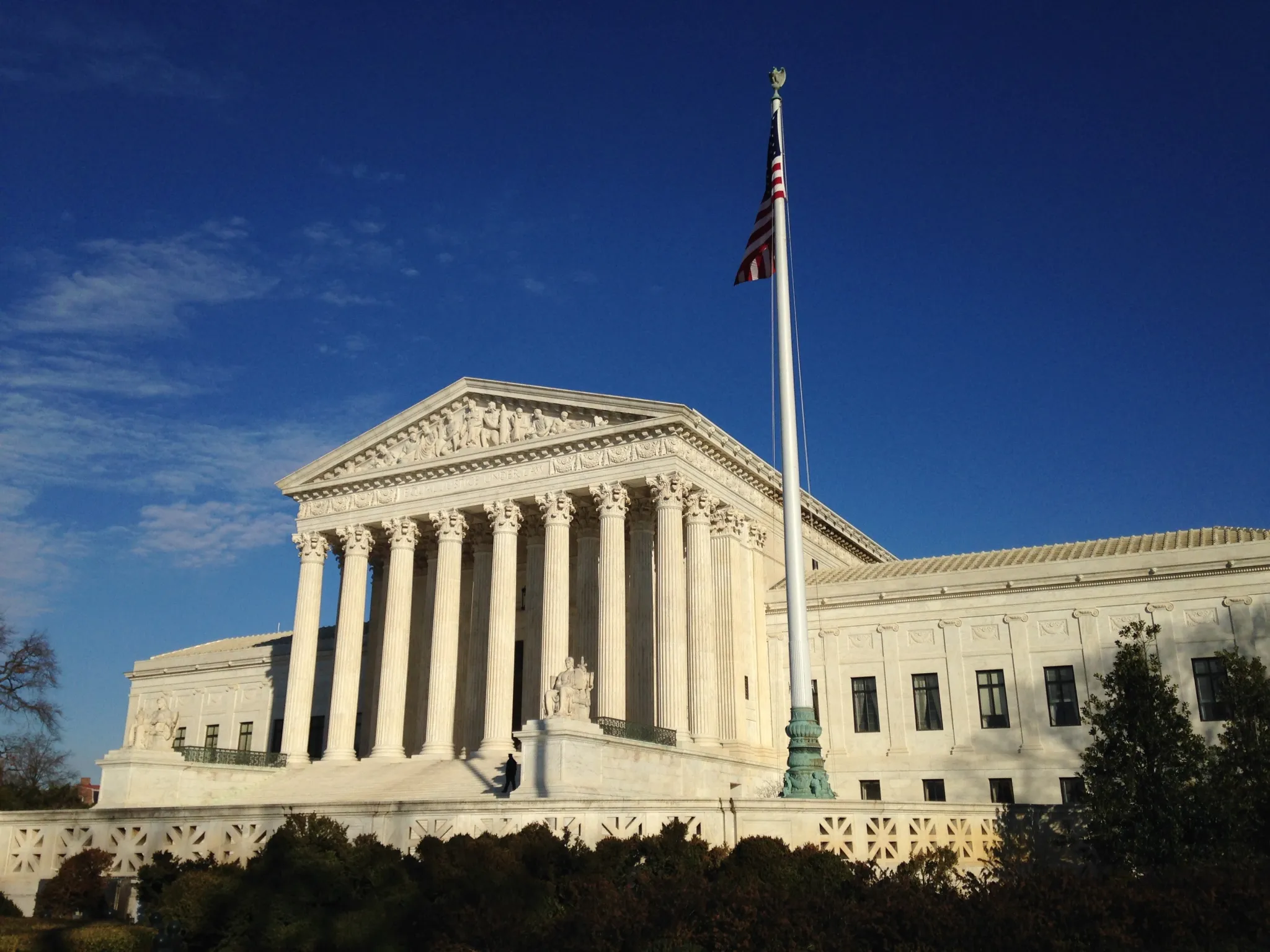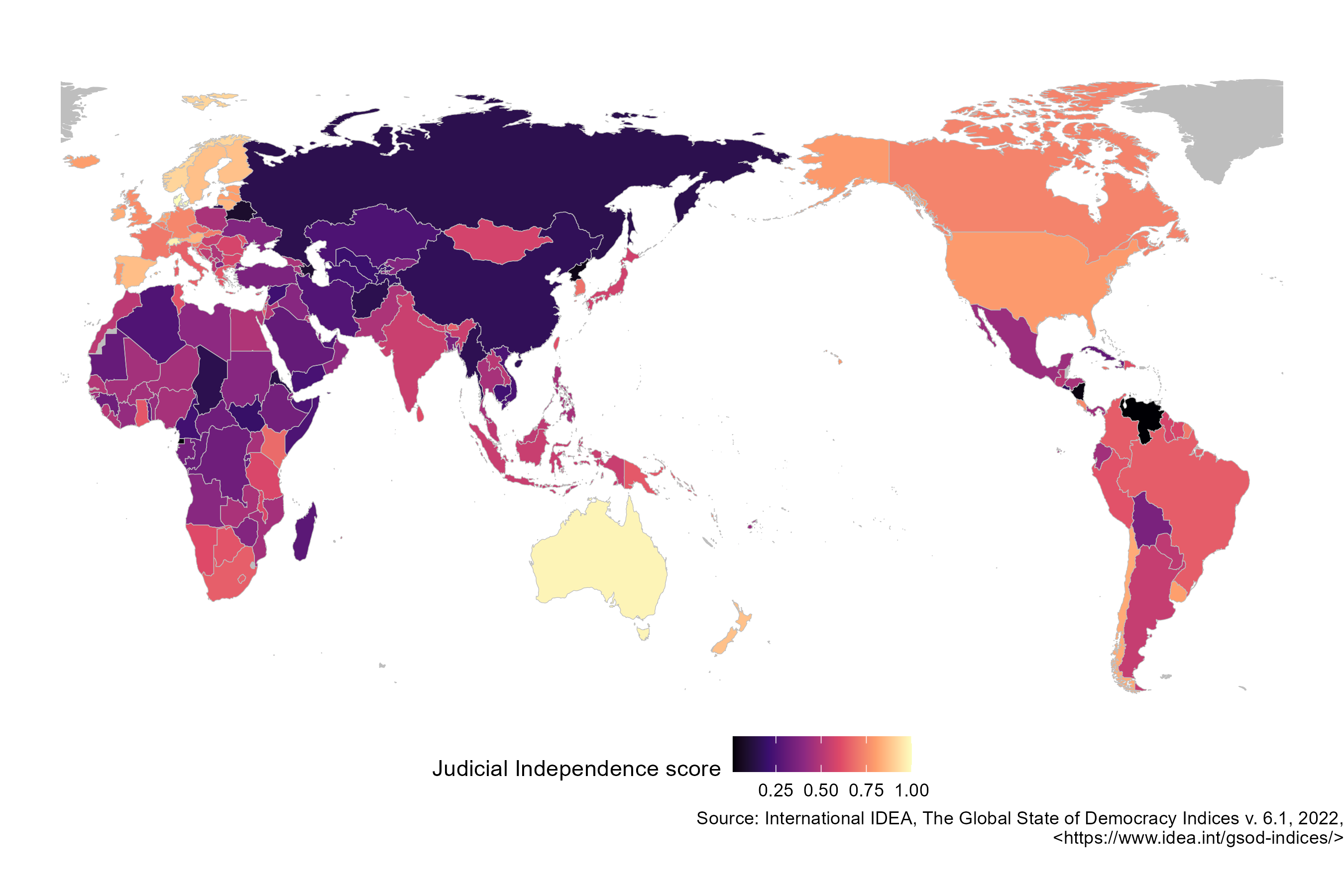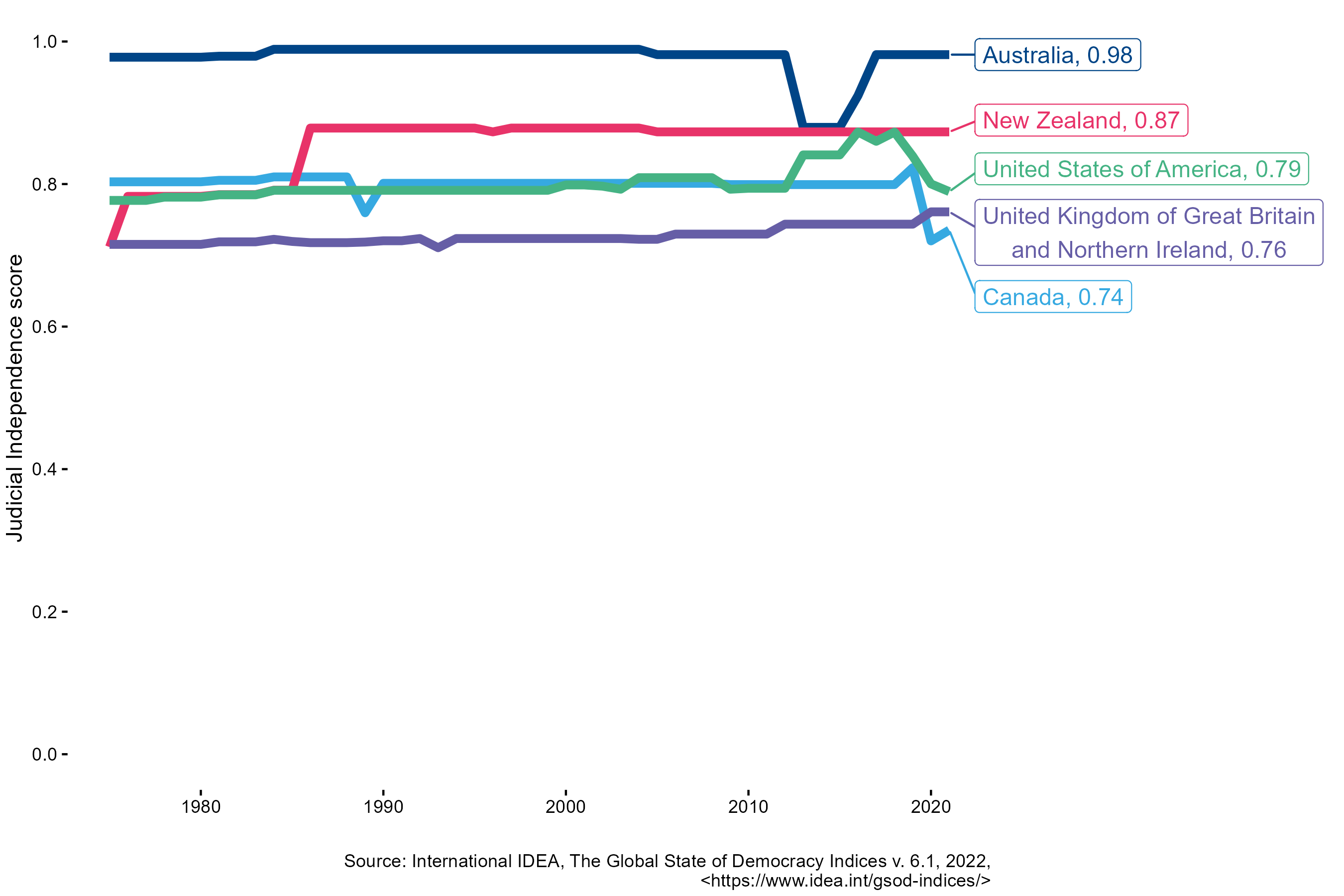How independent is the US Supreme Court? Updated GSoD Indices show a decline

Disclaimer: Opinions expressed in this commentary are those of the author and do not necessarily represent the institutional position of International IDEA, its Board of Advisers or its Council of Member States.
In the last weeks before its 2022 summer break, the Supreme Court of the United States of America ruled in several cases that will have life-altering consequences for millions of Americans and which captured the world’s attention.
In New York State Rifle & Pistol Association Inc. v. Bruen, the Court ruled that the state governments may not prevent people from carrying concealed firearms in most circumstances. In Dobbs v. Jackson’s Women’s Health Organization, the Court struck down a 50-year-old precedent (established in Roe v. Wade in 1973) and ruled that there is no constitutional right to abort a pregnancy. In West Virginia v. Environmental Protection Agency, the Court ruled that executive agencies cannot regulate without explicit authorization from Congress—stymieing the Biden administration’s plan to reduce carbon emissions.
These cases address issues on the political fault lines in the USA, and highlight how changes on the bench have delivered different outcomes. The political backlash to the Court’s rulings raises questions about the Court’s powers and its independence.
As opponents of these recent rulings begin to float proposals for reforms that would reduce the Court’s powers or independence, it’s natural to consider how the US Supreme Court compares to courts in other countries. International IDEA’s Global State of Democracy Indices (GSoDI) have data on judicial independence in 173 countries from 1975 to 2021, facilitating comparative analysis of the independence of the US Supreme Court both now and in the past.
In 2021 (the most recent full year for which we have data in the just-released v6.1 of the GSoDI), the courts in the USA were among the most independent in the world. The USA was solidly in the top 25 per cent globally but was not the most independent among countries that have similar legal traditions.
Figure 1. Map of Judicial Independence scores

Among countries with British-derived system of common law and a high level of overall democratic performance, there is relatively little change over time. The USA has consistently had lower levels of Judicial Independence than Australia and New Zealand, higher than the United Kingdom of Great Britain and Northern Ireland, and has been roughly the same as Canada.
Figure 2. Judicial Independence trends in selected countries

Despite very different appointment processes between the USA and Canada, the courts have historically had very similar levels of independence from the other branches of their governments. Both countries have seen declines in Judicial Independence over the past few years.
In the case of the USA, the decline is statistically significant. The overall trend is driven by declines in variables tracking the willingness of the Court to rule against the government beteween 2016 and 2020, and by a decline in 2021 in a variable tracking the impartiality of the legal system more broadly.
Considering these data alongside public opinion data, we find that while the US Supreme Court is now less in step with the broad trends in public opinion in the country, it is also less independent of other (elected) branches of the government. One should expect that this imbalance will be addressed in some way, most likely through new legislation in Congress.
Some of the proposals for reforming the court in the wake of the paradigm-shifting rulings of the last month (such as adding new justices, establishing term limits, or reducing the Court’s jurisdiction) could potentially have democracy-enhancing effects but could also reduce Judicial Independence in other ways. Whatever happens, we will report on developments during 2022 in version 7 of the GSoDI, planned for release in the second quarter of 2023.




